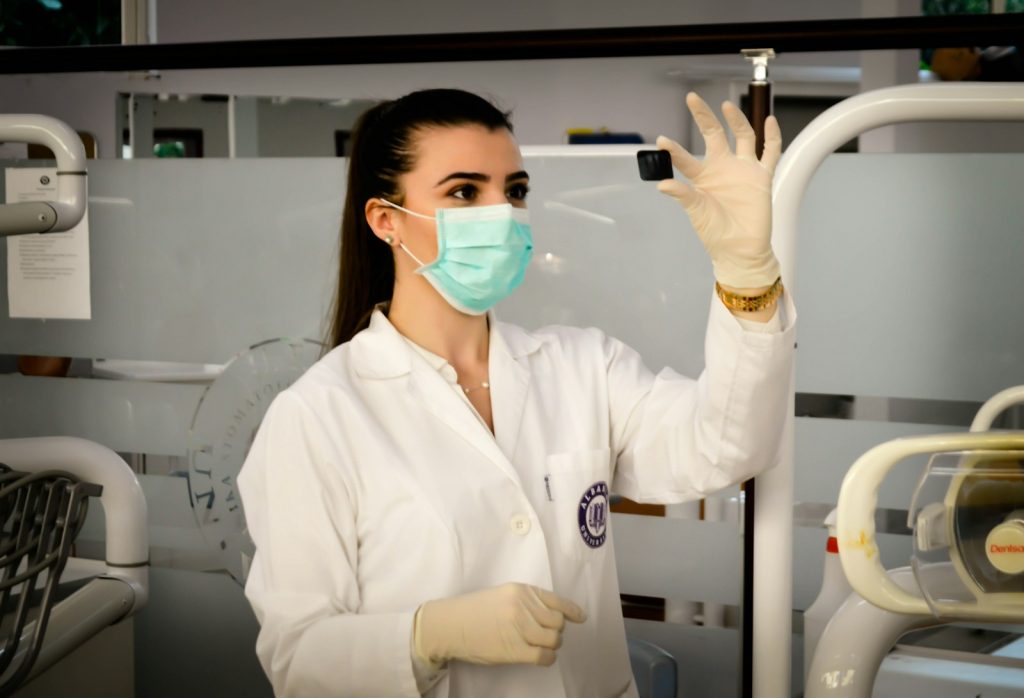The quality of healthcare staff can make or break a healthcare institution.
As a hospital owner, administrator, or recruiter, you have to ensure that every doctor, nurse, and support staff you employ is fully licensed.
In an industry where patient safety, compliance, and quality care are non-negotiable, failing to verify professional licenses could lead to severe consequences.
Different Types of Licenses Required by Healthcare Staff
Ensuring your staff is fully licensed begins with understanding the specific licenses required for each role.
Every healthcare role has its own licensing and certification requirements that must be adhered to in order to practice legally.
Licensing for Doctors
Every physician that you employ, must have a state medical license to practice, which is regulated by state medical boards.
In addition to this basic license, many doctors pursue specialty certifications, which may be required for certain roles like Surgery or Anaesthesiology.
These certifications ensure that the doctor is qualified to perform complex procedures safely.
Doctors also need to maintain their National Provider Identifier (NPI) number and complete Continuing Medical Education (CME) credits periodically to stay current in their field.
Licensing for Nurses
Nurses are integral to your healthcare facility. Are you aware that each level, nursing has its own licensing requirements, such as:
Registered Nurses (RNs)
They must pass the National Council Licensure Examination (NCLEX) and receive a license from the state’s nursing board.
Licensed Practical Nurses (LPNs)
They are required to pass an NCLEX exam, albeit for a different scope of practice.
Advanced Practice Registered Nurses (APRNs)
Those working as Nurse Practitioners (NPs), require additional certifications and must complete advanced training to receive their licenses.
Nurses operating in multiple states may benefit from the Nurse Licensure Compact (NLC), which allows them to practice across state lines without obtaining multiple licenses.
Licensing for Allied Health Professionals
Allied health professionals, such as radiologic technologists, respiratory therapists, and clinical laboratory technicians, also require specific licenses.
For example, radiologic technologists must be certified by the American Registry of Radiologic Technologists (ARRT), while respiratory therapists need to pass the National Board for Respiratory Care (NBRC) exam.
These professionals play a critical role in patient care, and verifying their credentials ensures that they can safely operate complex medical equipment and perform necessary procedures.
Support and Administrative Staff
While doctors and nurses often take the spotlight, support staff also play an important role in healthcare.
Medical assistants, nursing aides, and administrative personnel often require certifications or licenses to work in specialized roles.
Although their licenses may not be as highly regulated as those for doctors and nurses, failing to verify their qualifications can still pose risks to patient safety and overall hospital operations.
Credentialing and Privileging for Specialized Roles
In addition to general licensing, your hospital must ensure that its specialized staff are properly credentialed for their specific roles.
Credentialing is the process of verifying that healthcare providers have the necessary qualifications to practice in their chosen speciality.
For example, a general surgeon needs to have both a state medical license and hospital-specific surgical privileges to perform operations.
Failing to manage credentialing properly can result in legal liabilities and substandard care.
Key Benefits of Ensuring Proper Licensing
Verifying that all your healthcare staff have the appropriate licenses is not just a regulatory requirement—it’s a proactive strategy that offers numerous benefits to your institution. Some of these are:
Enhanced Patient Trust and Satisfaction
Patients tend to feel more confident when they know they are receiving care from licensed professionals.
Proper licensing ensures that healthcare workers meet the rigorous standards of their profession, which can lead to better patient outcomes.
A fully licensed team provides a sense of security to patients, enhancing their overall satisfaction and trust in your healthcare facility.
Reduced Risk of Malpractice Lawsuits
Employing unlicensed or underqualified healthcare workers significantly increases the risk of malpractice.
If a patient suffers harm at the hands of an unlicensed provider, your hospital could face costly legal battles, financial damages, and reputational harm.
Proper licensing helps mitigate this risk by ensuring that your staff is competent and qualified to deliver safe care.
Increased Operational Efficiency
Licensed healthcare professionals typically require less supervision and training because they already meet the necessary standards to perform their duties.
Legal and Regulatory Protection
Healthcare is one of the most regulated industries, and failing to verify licenses can expose your facility to lawsuits, fines, or other penalties.
Proper licensing ensures compliance with all applicable regulations and helps protect your institution from legal risks.
Improved Team Collaboration and Communication
Licensed professionals are trained to work effectively within interdisciplinary teams, fostering a culture of collaboration and communication.
Safeguarding Against Fraudulent Professionals
Verifying professional licenses can prevent the hiring of fraudulent healthcare providers.
Conducting thorough license checks helps avoid this issue by ensuring that only qualified individuals join your staff.
Better Insurance Rates and Coverage
Many insurance providers offer lower premiums to healthcare facilities that employ fully licensed staff. This is because licensed professionals are seen as lower risk by insurers.
Promotes a Culture of Accountability
Licensed staff understand the importance of maintaining professional standards and are more likely to adhere to ethical guidelines.
This accountability reduces incidents of negligence and boosts morale across your institution.
Attracts Top Talent
Healthcare professionals want to work in environments where standards are upheld.
A positive reputation can help you attract and retain top-tier talent, as qualified individuals seek positions in well-regulated facilities.
Enhances Patient Outcomes
Licensed professionals are more likely to stay up-to-date with the latest medical advancements and best practices in patient care.
They are far better equipped to handle complex medical cases, ultimately improving patient outcomes and reducing recovery times.
Potential Risks of Ignoring Professional License Checks
Neglecting professional license checks in Healthcare can lead to a wide range of risks, each with serious implications for your healthcare facility. Some of these are:
Increased Legal Exposure and Penalties
Failing to verify licenses can result in significant legal exposure.
State licensing boards regularly audit healthcare facilities, and if your institution is found to have unlicensed staff, it could face heavy fines or other penalties.
Also, patients harmed by unlicensed staff may file lawsuits, adding to your legal liabilities.
Patient Safety Compromise
One of the most alarming risks of hiring unlicensed staff is the potential compromise of patient safety.
Unlicensed healthcare workers may lack the knowledge and skills needed to perform their duties competently.
Malpractice and Increased Liability
When healthcare workers are unlicensed, the likelihood of malpractice rises dramatically.
Your facility could be held liable for any mistakes or negligent actions committed by unlicensed staff, leading to costly settlements and increased insurance premiums.
These malpractice claims can also drain financial resources and cause long-term damage to your institution’s credibility.
Loss of Accreditation
Accreditation from organizations like the Joint Commission is essential for maintaining a healthcare facility’s legitimacy.
Hiring unlicensed or underqualified staff can jeopardize this accreditation.
Loss of accreditation not only tarnishes your hospital’s reputation but also makes it more difficult to attract qualified staff and patients.
Financial Loss
The financial consequences of hiring unlicensed staff extend beyond legal penalties.
You may face increased insurance premiums, the cost of hiring legal counsel, and even patient lawsuits.
Workforce Instability
If an unlicensed employee is discovered, they may be immediately dismissed or suspended, leaving your hospital short-staffed.
Amid a staffing crisis, having to replace key personnel due to licensing issues can disrupt operations.
Breach of Insurance Contracts
Many insurance contracts require hospitals to employ fully licensed healthcare professionals.
If an unlicensed employee is involved in patient care, your insurance provider may deny coverage in the event of a malpractice claim.
Damaged Employee Morale
Licensed staff may feel demoralized if they perceive that unlicensed or underqualified colleagues are working alongside them without being held to the same standards.
Delays in Patient Care
Unlicensed staff may not have the required expertise or legal authority to perform certain procedures, causing delays in patient care.
Potential for Criminal Charges
In extreme cases, knowingly employing unlicensed healthcare staff can result in criminal charges against the hospital’s administrators or owners.
This could lead to serious legal consequences, including jail time, depending on the severity of the breach and its impact on patient care.
Increased Staff Turnover
When a healthcare facility is found to have unlicensed staff, other employees may question the institution’s management and its ability to maintain professional standards.
This distrust can lead to higher staff turnover, which results in additional recruitment and training costs, further burdening your facility.
Challenges in License Verification
While license verification is crucial, it does come with its own set of challenges, particularly for large healthcare organizations or multi-state facilities. Some of these are:
Varying State and National Requirements
Licensing requirements vary significantly from state to state. For healthcare facilities that operate across state lines, keeping up with the various state-specific regulations can be difficult.
Staff Shortages and Pressure to Fill Positions
Healthcare facilities often face intense pressure to fill open positions quickly, especially in times of high demand. This urgency can sometimes result in cutting corners when it comes to verifying licenses.
Dealing with Expired or Lapsed Licenses
Even well-established healthcare professionals can let their licenses lapse accidentally.
It’s not enough to check licenses once during the hiring process; you must continuously monitor your staff’s credentials to ensure their licenses remain valid.
Verifying Foreign Qualifications
Healthcare professionals from outside the U.S. often have different education and licensing standards.
Verifying foreign qualifications can be a daunting task, especially when trying to determine whether their credentials are equivalent to U.S. standards.
Managing Multiple Expiration Dates
Each healthcare professional’s license may have a different expiration date, creating an administrative burden.
For large healthcare facilities with numerous staff members, tracking and updating these expiration dates can become overwhelming.
Keeping Up with New Licensing Requirements
Healthcare regulations are constantly evolving, and licensing requirements can change depending on new state or federal laws.
Staying updated on these changes is critical, but it can be challenging to ensure that your staff are always in compliance with the latest standards.
Variations in International Standards
For healthcare workers trained abroad, verifying international credentials and licenses can be complex.
Evaluating whether foreign-trained professionals meet local requirements often involves additional steps, including third-party evaluations or assessments by national boards.
Limited Access to Reliable Verification Databases
Some states or countries may not have centralized or easily accessible databases for verifying licenses, making the process more time-consuming and prone to errors.
Staffing Constraints During Verification
If your hospital is short-staffed, there may be pressure to expedite the hiring process and skip thorough license checks. However, cutting corners during license verification can result in significant risks later on.
Conclusion
Ensuring that your healthcare staff are fully licensed is not just a regulatory requirement—it’s a crucial part of maintaining patient safety, institutional reputation, and operational efficiency.
As a hospital owner, administrator, or recruiter, you have a responsibility to implement thorough and ongoing license verification processes.
Consulting with a background verification company can help streamline the process, ensuring that your hospital remains compliant and your patients receive the highest standard of care.
Why Choose AMS Inform for Professional License Verification?
Given the critical nature of verifying professional licenses, many businesses opt to work with AMS Inform for seamless, reliable solutions.
With over 38 years of experience since its founding in 1986, AMS Inform has established itself as a trusted leader in the background verification sector.
Our expertise spans various areas, including professional license checks, identity and digital ID verification, educational background verification, and pre-and post-employment screening.
In addition to license verification, we provide services such as credit checks, drug and health screening, insurance claim investigations, and language translation.
With a presence in over 160 countries and local teams in 16 of them, AMS Inform is positioned to support your organization’s needs globally, ensuring smooth operations and adherence to regional regulations.
Choosing AMS Inform allows your company to save valuable time and maintain compliance with relevant laws and industry standards.
As a member of NASSCOM and PBSA, we are committed to safeguarding both your business’s reputation and operational health.
Reach out to us for custom solutions tailored specifically to your professional license verification needs.
















